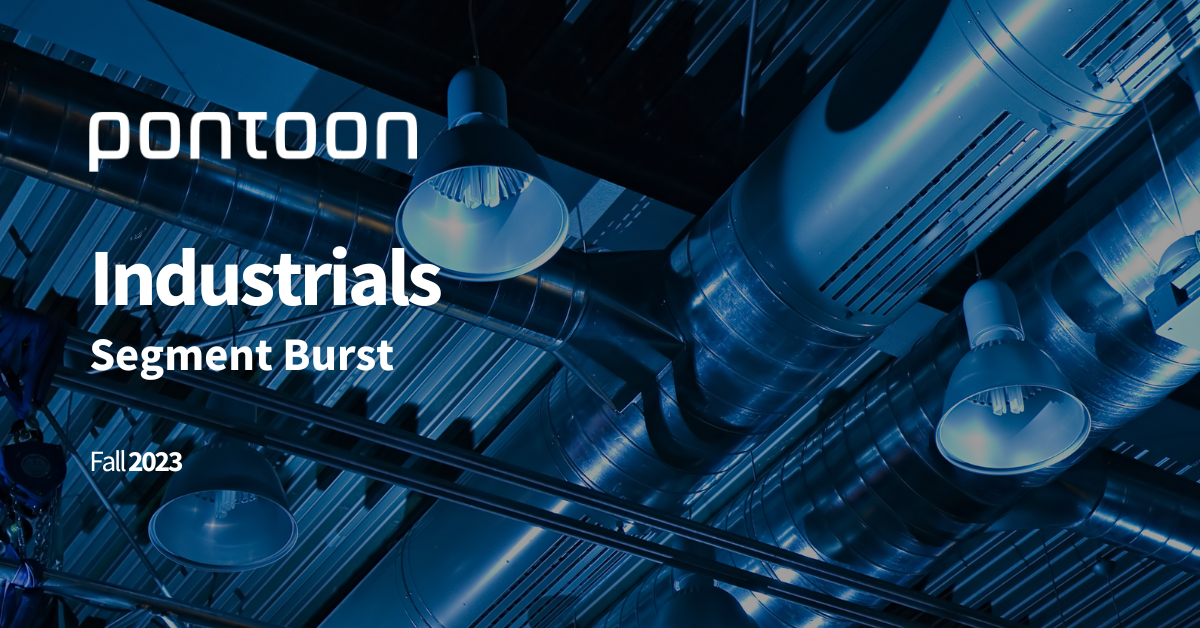Industrials Segment Burst: Fall 2023
Research
.
In the Fall 2023 volume of Industrials Segment Burst, we explore the most recent trends in the automotive, aerospace, and green energy industries.
Global car makers target Latin America
Latin America is emerging as a hotbed of activity for the automotive industry. Manufacturers from around the world are investing in the region, enticed by its growing automotive market and abundant raw materials.
Car giants such as Toyota, Volkswagen, General Motors, and Renault are among the front-runners tapping into Latin America’s potential. Key countries of interest include Brazil, Chile, and Argentina, identified as growth drivers. However, challenges such as unemployment, poverty, and political instability underscore the complexity of investing in this region.
Volkswagen recently made headlines with its commitment to invest €1 billion in South America by 2026. This substantial investment aims to nurture the development of ethanol-based combustion engines and innovative business models, including car subscriptions.
Chinese car manufacturers are also eyeing Latin America, especially Brazil, as a fertile ground for electric vehicles (EVs). Despite weak fiscal incentives and inadequate charging infrastructure, companies like Great Wall Motor are gearing up for a South American EV push.
Latin America’s allure doesn’t stop at the automotive market – it’s also a rich source of essential raw materials. Chile and Argentina are major producers of lithium, a crucial component of EV production. Car manufacturers are establishing supply agreements with mining companies in the region, securing access to these valuable resources, while prioritising sustainable mining practices.
With long-term supply contracts and expanding operations, these companies are making a clear statement: Latin America is integral to their future growth and sustainability strategies. Investments in recruiting are bound to follow.
As Latin America’s automotive market continues to evolve, partnering with an experienced talent provider enables companies to tap into a vast talent pool, overcome recruitment challenges, and drive sustainable growth in this promising region.
Read this thought leadership article from Pontoon to discover how we can support your company with strategic sourcing in Latin America.
Age and education inequalities in the green transition
As the world shifts from emission-heavy industries to environmentally friendly ones, fresh research unveils disparities in the green revolution.
Despite a noteworthy upswing in transitions to green employment, accelerated by the $369 billion Inflation Reduction Act (IRA), less than 1% of workers departing fossil fuels in the US secure positions in green sectors.This casts doubt on the inclusiveness of the green transition.
Experienced workers, particularly those aged 40–60, as well as those without a college education, encounter formidable obstacles when transitioning to green occupations. Green jobs, notably associated with renewable energy sources like solar, wind, and electric vehicle manufacturing, have predominantly favoured white-collar professionals. This encompasses roles such as sales managers, software developers, and marketing managers.
Interestingly, more than 20,000 green positions in the US have been filled by overseas workers, while only 27% have gone to first-time job seekers. Moreover, in certain cities, as much as 90% of transitions lead to carbon-intensive jobs.
The shift towards green employment is undeniably underway, yet it is not without its share of challenges. To guarantee an impartial and equitable transition to a green economy, policymakers and industry leaders must prioritise worker protection and facilitate accessible education. The goal is to make a greener economy that leaves no one behind and contributes to narrowing – and not widening – existing labour market disparities.
How? There are several recommendations to be made.
Firstly, promoting diverse talent sourcing encourages businesses to embrace a broad spectrum of professionals, including older workers and those without traditional degrees. Secondly, providing training and reskilling programmes empowers individuals to acquire the skills necessary for green jobs. And finally, advocating for equal access ensures that policies and practices support inclusive hiring.
Increased need for specialised talent in aerospace
Civil aviation is steadily recovering to pre-pandemic levels, while the defence sector remains robust and resilient. The global demand for military equipment has surged in response to geopolitical tensions. As such, the aerospace manufacturing industry is experiencing a remarkable revival. The industry’s total value reached $US700 billion in 2022, marking a substantial rebound.
This resurgence is not limited to a single facet of the industry – it spans a broad spectrum. Aerospace engineers, supply chain experts, data analysts, experts in defence engineering and strategic planning, and various other specialists are in high demand to sustain growth and innovation.
However, the aerospace industry is not without challenges. Persistent supply chain disruptions and the spectre of high inflation loom large. These complexities underscore the need for specialised talent capable of navigating hurdles effectively. Supply chain analysts, logistics experts, and financial strategists are indispensable in devising solutions to keep the industry on a steady course.
Additionally, the aerospace sector faces challenges with attraction and retention due to a less competitive EVP when compared to other industries on the hunt for similar talent. According to McKinsey, the aerospace & defence industry is behind tech and automotive peers on many cornerstones of the employee value proposition – especially when it comes to culture and values, diversity and inclusion, and leadership.
Green aerospace talent: Attracting young generations of workers
Sustainability is a pressing concern for the aerospace industry. Professionals skilled in green technology, materials science, and environmental engineering are pivotal in shaping a greener future for aviation. They play a vital role in reducing the industry’s environmental footprint and driving sustainable practices.
According to McKinsey, with the green transition being propelled by younger generations, companies should:
- Ensure a seamless talent acquisition experience: A convoluted application process and extended time-to-hire can discourage potential candidates.
- Embrace effective communication: Given the young generation’s strong preference for consuming information through social media, aerospace companies should strategically use these channels to communicate their EVP.
- Provide hybrid work arrangements: If hybrid options are eliminated, younger workers are 59% more inclined to leave their jobs than older colleagues.
- Deliver on authentic DEI commitments: As younger generations are among the most committed to social and environmental issues, aerospace companies need to make diversity, inclusion, and sustainability a core of both their operations and EVP.
Related Post
Brazil is one of the most diverse economies in Latin America. As organisations look to expand into the region, it's crucial to explore contingent hiring options to unlock Brazil’s skilled ...





